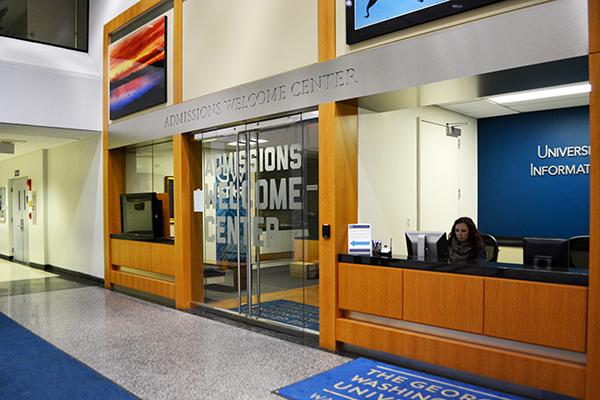Updated: Feb. 27, 2017 at 3:58 p.m.
Wages were cut by more than $4 an hour for some students working for GW this summer.
Last summer, student summer employees were paid D.C. minimum wage, which is currently set at $11.50 per hour, and received free GW housing. Starting this year, all students will still receive free housing, but those working for Visitor Information Program summer tours will earn $8.50 an hour and those working for housing will be paid $7.25 an hour, the federal minimum wage.
Students’ wages for the Division of Operations have not yet been set.
Officials said that even with the changes to pay, the number of applications received so far have been consistent with prior years.
University spokeswoman Maralee Csellar said while hiring for summer 2017 has not yet begun, the GW Housing Office typically hires, pays and houses about 35 students for these positions.
“Compensation for summer student positions depends on a variety of factors including office requirements, budgetary considerations, position and level of responsibility and housing,” she said.
Compensation for summer student positions depends on a variety of factors including office requirements, budgetary considerations, position and level of responsibility and housing.
Summer assistants work three to five-hour shifts a week, according to the summer assistants website. The value of on-campus summer housing, which was in Guthridge Hall last summer, is $4,250.
Summer assistants’ responsibilities range from assisting with the daily operations of the guest services office to running “after hours” on-call coverage for the summer and conference housing program.
A former summer assistant who applied to work for the program again this summer, who spoke on the condition of anonymity out of fear of losing her job, said that her salary increased from $11 to $11.50 part way through the summer last year when D.C. increased its minimum wage, in addition to her complimentary housing in Guthridge Hall.
“The University is being kind of cheap, but I think it makes sense because they are giving us free housing,” the student said. “I think it’s kind of unfair just because the kids are targets.”
The sophomore added that the wage cut may deter qualified students from applying if they could make more money at home, as 29 states offer a minimum wage higher than $7.25 per hour.
She added that while the federal minimum wage may be able to get her through the summer, she won’t be able to save up for the school year like she could last year.
“I think it’s just really shitty of the University because the kids who are staying this summer and working for free housing are the kids who really need the money,” she said. “But I understand because if I took every penny I made last summer, it wouldn’t have added up to how much housing in D.C. costs. I still wouldn’t have been able to pay for rent here, much less pay for food and utilities.”
Sen. Devan Cole, CCAS-U, who worked as a summer assistant for the housing office for the past two summers, said the job allowed him to afford to live in D.C. for the summer.
“Off the bat, I think the wage cut will turn students away,” Cole said. “For me, the free housing was key because I couldn’t afford to sublet, and I worked those jobs both summers to be able to stay in D.C.”
It is a sobering reminder that the University does not consider affordability a priority.
Cole said he doesn’t think the University can justify reducing the summer assistant wage to a level that is “unaffordable.”
“I was initially shocked when I heard about the reduction because $7.25 is not something students can live off of,” Cole said. “It is a sobering reminder that the University does not consider affordability a priority.”
Cole said the Student Association has made affordability a focus for the past few years and hopes officials will reconsider the wage cut. In August, the SA senate passed a resolution to create affordability reports that will outline what costs are the biggest concerns for students. In December, the senate introduced an affordability survey, which is open to the entire student body to fill out.
“I think students here are committed to creating an atmosphere that is affordable for students from various economic backgrounds,” Cole said. “I think that the University, time after time, has shown that affordability has taken a backseat to other priorities.”
A junior, who worked as a summer assistant last year and spoke on the condition of anonymity, said the individual summer programs were clear about the wage changes, but the University could have handled it better overall.
I think opening a direct line of communication can be beneficial for the students to understand why the wage cut is happening.
“The University could have been more clear up front before the students went to apply to the individual summer programs and waiting to find out then,” the student said.
The junior added that communication between the University and the students can be beneficial for both parties.
“If students have a problem, they should talk to the administration and see the reasonings behind the wage cut,” the student said. “I think opening a direct line of communication can be beneficial for the students to understand why the wage cut is happening.”
This post was updated to reflect the following correction:
The Hatchet incorrectly reported that students who work for the Division of Operations would be paid $7.25 an hour. Their wage has not yet been set. We regret this error.





